Opening up the Future

The future of every Russian citizen (and non-Russian, too, in this globalised world) is what Open Russia is all about. Everything we do is done with an eye to the future – your future.
In the first few months of 2016, Open Russia launched a number of initiatives that will form the core of its activities, looking ahead at the next generation, an alternative Russia that can take its place in the world as an equal – highly educated, open minded, democratic, thoughtful, and talking about everything to everybody, without fear or favour.
Open Russia University
Education is the key to success in this globalised world. The Open Russia University is about preparing tomorrow’s leaders –
It’s an online educational humanities project, taught in Russian by leading academics, scientists, writers and economists, and open to all Russian speakers, of any age, wherever they may be.
And judging by the number of admissions we’ve had, open minded is the way to go!
The aim of the Open Russia University is to look into Russia’s past, so as to better understand it’s future, and how best to develop and manage that future.
Mikhail Khodorkovsky, founder of the Open Russia movement, has spoken about the importance of an analytical and impartial education: “The humanities are in a deplorable condition [in today’s Russia]. Many sources, originally meant to educate and widen people’s horizons are ideologically biased. The Open Russia University is a step towards returning to a … balanced analysis of the past, and an assessment of both the present and future.”
The Open Russia University is free, and open to all Russian speakers who have access to the Internet. In keeping with the democratic aims of the Open Russia movement, there are no entrance qualifications. Registration is easy, via the www.openuni.io website; students need only a Facebook or vKontakte account to register. Upon registration, students have access to the entire programme.
Open Elections

Let’s vote for our future! Let’s not allow anybody to take our future away from us. It’s in your hands.
Open Elections is the democratic elections project of Open Russia.
Russia will hold elections to the State Duma [parliament] in September 2016, and a presidential election in 2018. In advance of the Duma election, Open Russia is supporting a number of candidates campaigning on a liberal democratic ticket. To guard against, and publicise interference in an open electoral process, the Open Elections team will run an Open Elections Hot Line during the campaign, and send observers to polling stations on Election Day. Support is being given to those candidates that share the aim of the Open Russia movement, who are serious about the development of their region, and willing to engage in discussion about the issues affecting the country on a federal level.
Electoral candidates being supported by Open Russia and the Open Elections project, will be given strategic, information and legal support. Specialists will help build an effective campaign, collect the necessary signatures, create a professional staff, and attract like-minded volunteers. This activity will help to equalise the prospects of opposition candidates, who face an uphill struggle in the face of the entrenched advantages of the ruling party, and a system that is stacked against them, and riddled with corruption and malpractice.
The Open Elections project is about planting the seeds of political awareness for a new generation of Russians, developing their ability to engage and organise politically.
The Institute of Modern Russia
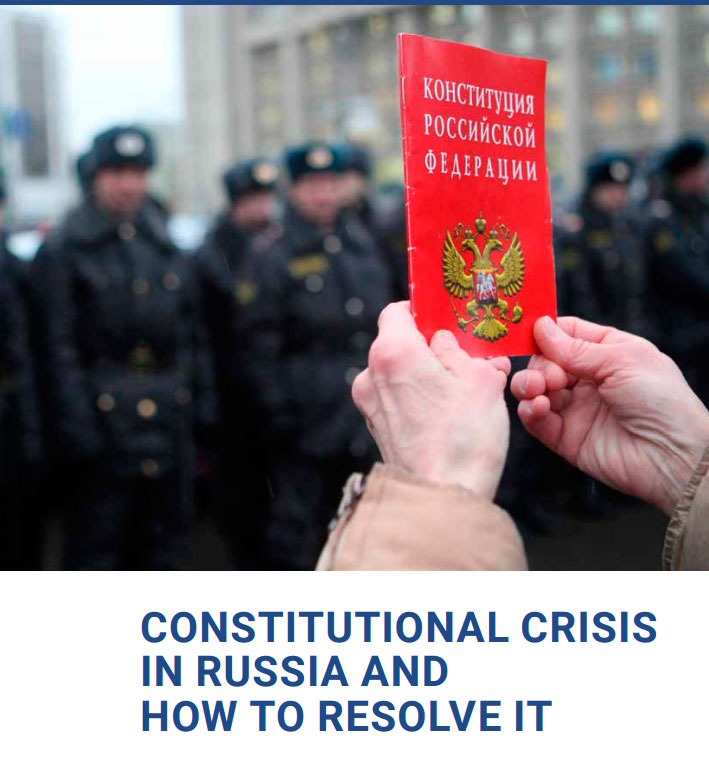
There can be no future unless we think about what we want it to look like. So we invited the brightest Russian minds to do just that!
The Institute of Modern Russia, the think-tank of the Open Russia movement, published its Constitutional Reform report – the first of a series, looking at an alternative Russia.
In their introduction, the authors describe a situation that it at once pessimistic and hopeful.
Russia is at a constitutional turning point. The outcome of this moment—an anti-constitutional coup or the beginning of a long effort aimed at the restoration of constitutional freedoms and principles that have been gradually usurped for 15 years by reactionary reforms, which have one by one eroded the democratic essence of the Russian Constitution—depends upon the people. Today, everything points to the willingness of the authorities to use foreign and domestic challenges—some of them real, others of their own making—to eradicate any remaining sense from the Constitution.
There is every indication that an anti-constitutional coup is already in process. In Russia, power is being concentrated in the hands of unconstitutional authorities that have taken the place of constitutional institutions. Some of these authorities have been formalized (such as the Presidential Administration or the Security Council), while others exist somewhat “beyond politics”—as a small circle of presidential insiders. Russia does not know by whom it is governed, let alone who controls these people.
You can read the full report in English here.
You can read the full report in Russian here.
The Open Wall
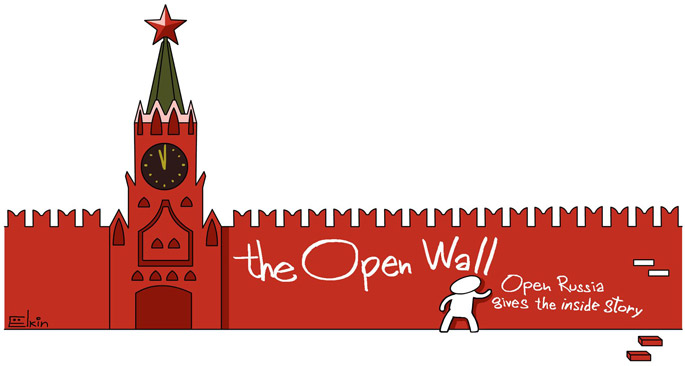
Wouldn’t you like to know what really goes on inside the Kremlin? To find out what they’re really up to? Do they even give one thought to our future?
The Open Wall gives the inside story of what is really going on inside the Kremlin. The opinionated opinion piece that even the Kremlin can’t help reading …
Off-Piste looked critically at the people inside Putin’s inner circle. And in Place your bets, ladies and gentlemen we reported on the emergency meeting about the rouble with the Governor of the Central Bank.
In Genuine Panama we look at what the Panama Papers mean for Putin. And in From the iron curtain to a broken window Mikhail Khodorkovsky looks at Winston Churchill’s “Iron Curtain” speech, in the context of today’s conflicted relationship between Russia and the West.
And in The Russian Orthodox Church worships Putin-style capitalism church finances seem anything but ascetic.
Open Russia Club
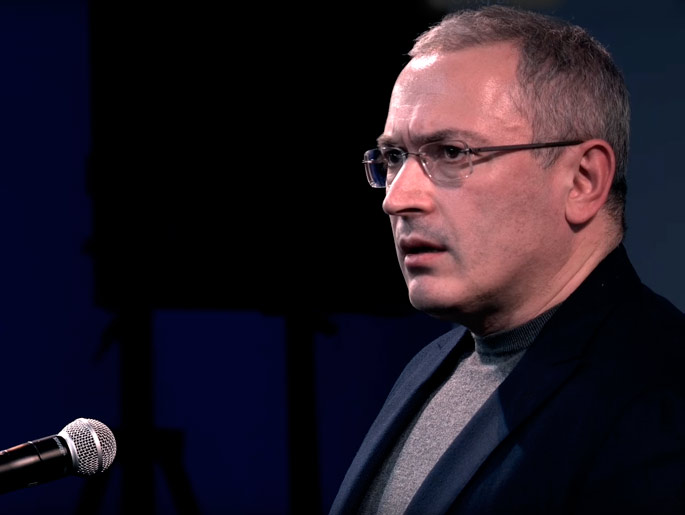
What are thinking Russians really thinking? What are Russians really saying – when there’s nobody around, that is, to keep them quiet …?
The Open Russia Club opened its London doors at the end of last year, since which time it has rapidly become an established part of Russian cultural life.
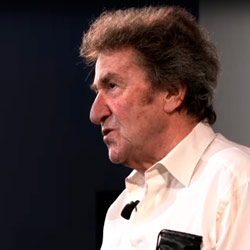 Highlights have included Igor Guberman the celebrated poet, satirist and dissident who was making his first public appearance in London. The inventor of the so-called garik – the name he coined for ironic quatrains probing some sliver of reality in aphoristic and precise fashion – treated the audience to readings of poems old and new. Guberman, whose verses have long since entered urban folklore, enjoyed a lively reception.
Highlights have included Igor Guberman the celebrated poet, satirist and dissident who was making his first public appearance in London. The inventor of the so-called garik – the name he coined for ironic quatrains probing some sliver of reality in aphoristic and precise fashion – treated the audience to readings of poems old and new. Guberman, whose verses have long since entered urban folklore, enjoyed a lively reception.
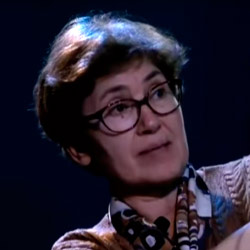 Natalia Zubarevich. Russia’s foremost expert in the field of regional economics, gave her interpretation of the crisis currently gripping the country while also discussing its potential after-effects. Despite the pessimism of her forecasts and her academic style of presentation, the video of Natalia Zubarevich’s lecture at the Open Russia Club has been viewed by more than 250,000 people.
Natalia Zubarevich. Russia’s foremost expert in the field of regional economics, gave her interpretation of the crisis currently gripping the country while also discussing its potential after-effects. Despite the pessimism of her forecasts and her academic style of presentation, the video of Natalia Zubarevich’s lecture at the Open Russia Club has been viewed by more than 250,000 people.
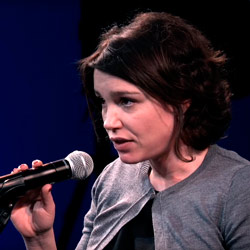 On February 27, Zhanna Nemtsova, Boris Nemtsov’s eldest daughter, spoke about the Boris Nemtsov Foundation for Freedom, which she founded in memory of her father. Nemtsova and the Foundation’s board members discussed the organisation’s mission, goals and projects. That same evening saw the premiere of the Russian-German documentary film Boris Nemtsov, made with the participation of Mikhail Kasyanov, Alexei Navalny, Vladimir Zhirinovsky, Mikhail Prokhorov, Zhanna and Raisa Nemtsova, Mikhail Fridman, Alfred Kokh, and Mikhail Khodorkovsky.
On February 27, Zhanna Nemtsova, Boris Nemtsov’s eldest daughter, spoke about the Boris Nemtsov Foundation for Freedom, which she founded in memory of her father. Nemtsova and the Foundation’s board members discussed the organisation’s mission, goals and projects. That same evening saw the premiere of the Russian-German documentary film Boris Nemtsov, made with the participation of Mikhail Kasyanov, Alexei Navalny, Vladimir Zhirinovsky, Mikhail Prokhorov, Zhanna and Raisa Nemtsova, Mikhail Fridman, Alfred Kokh, and Mikhail Khodorkovsky.
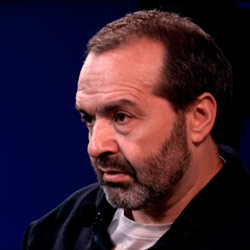 Writer and satirist Viktor Shenderovich departed from the usual format of his artistic evenings, and delivered a lecture – written exclusively for the Open Russia Club – entitled “Putin: Symptom or Curse?” Shenderovich situated the Putin era in the broader context of Russian history as well as discussing what may lie in store for the country after his departure. The satirist’s political analysis was every bit as sharp as his stand-up routines, with the capacity audience exploding into applause on numerous occasions.
Writer and satirist Viktor Shenderovich departed from the usual format of his artistic evenings, and delivered a lecture – written exclusively for the Open Russia Club – entitled “Putin: Symptom or Curse?” Shenderovich situated the Putin era in the broader context of Russian history as well as discussing what may lie in store for the country after his departure. The satirist’s political analysis was every bit as sharp as his stand-up routines, with the capacity audience exploding into applause on numerous occasions.



